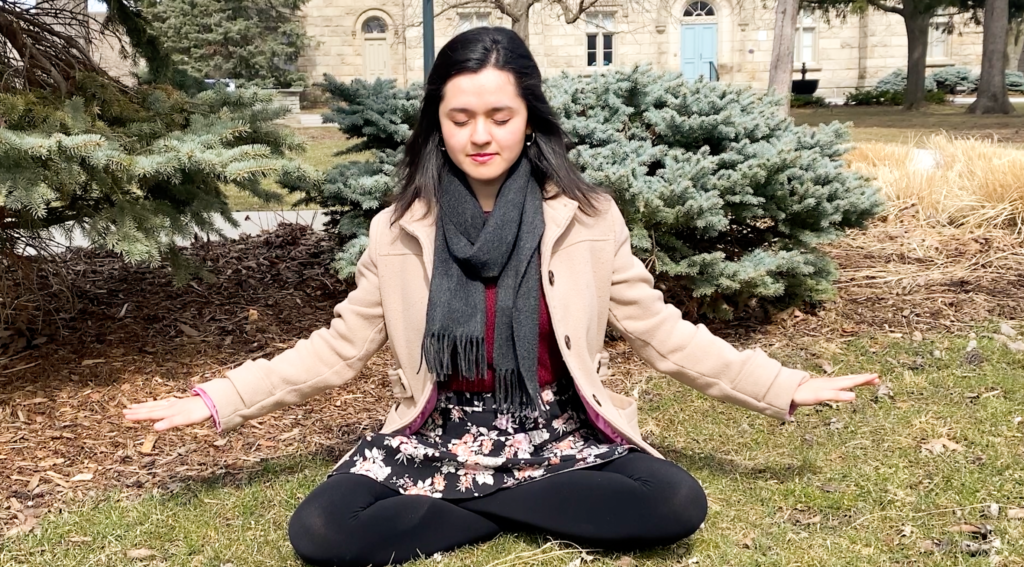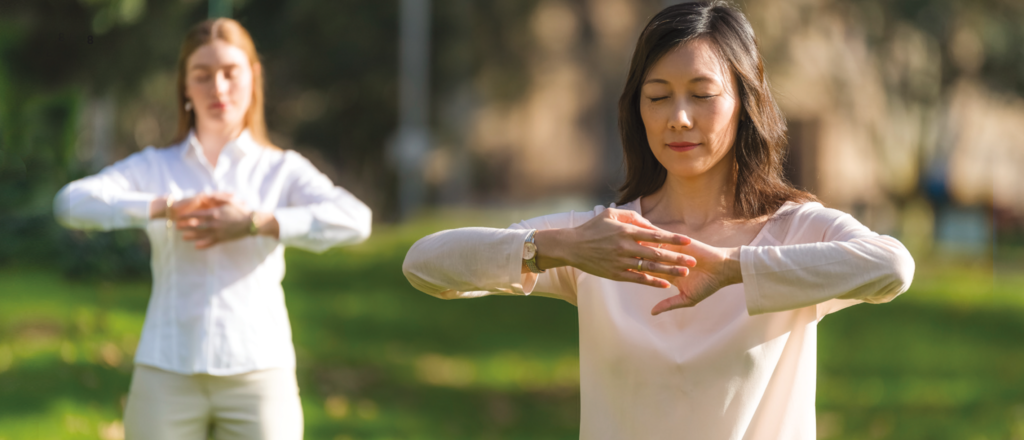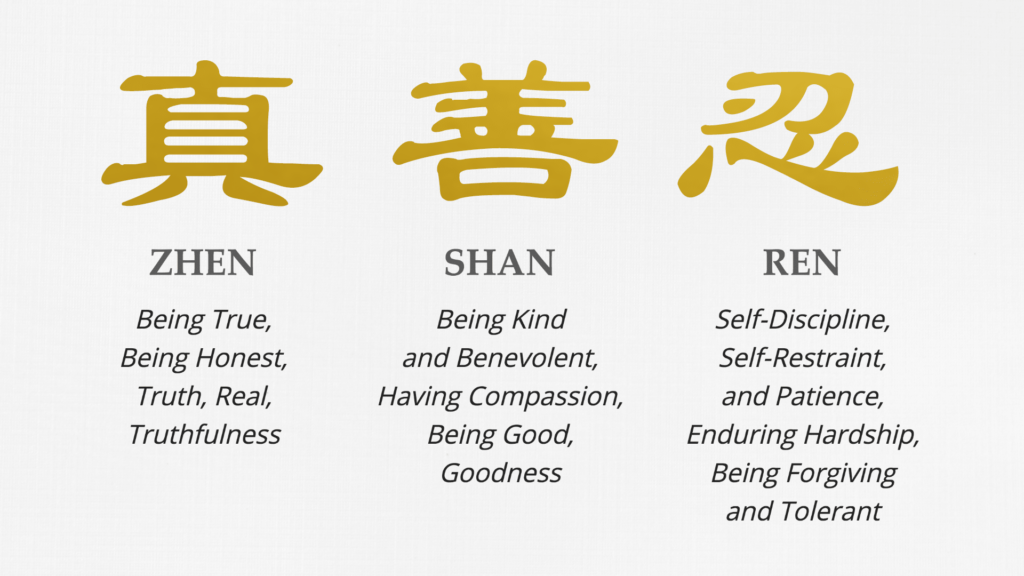
The last few decades have brought significant technological advances to human society. While development and inventions are aimed at simplifying our lives – and how convenient things have become! – our minds have grown increasingly complex. Just try to sit quietly for a few minutes and you will see how your mind instantly fills with all sorts of thoughts, all of them trying to get your attention.
Yoga and meditation have become a top choice for those who, amidst the hustle and bustle of daily life, wish to achieve inner calm and peace of mind. Among the many practices introduced to the West, Falun Dafa, a self-cultivation practice rooted in traditional Chinese culture, has become one of the fastest growing meditation disciplines today, practiced by millions of people worldwide.
Cultivating the body through gentle qigong exercises
Qigong (pronounced chee-gong) or energy practice, is a system of coordinated movements and meditation developed in China thousands of years ago as part of Traditional Chinese Medicine. It aims to cultivate and balance qi – translated as life energy – as a means of spiritual elevation and health improvement.

Falun Dafa, also known as Falun Gong, is a qigong practice of the Buddha School. It consists of five easy-to-learn meditative exercises that increase energy and vitality. Suitable for modern lifestyles, these exercises can be performed anytime, anywhere and in any order. Consistent practice has been shown to bring health benefits such as strengthening the immune system, improving clarity of mind, and supporting emotional regulation.
Character improvement at the core of the practice
Introduced to the public in China in 1992 by its founder Mr. Li Hongzhi, Falun Dafa rapidly gained popularity for its emphasis on character improvement. In addition to cultivating the body, Falun Dafa emphasizes the refinement of one’s heart or mind nature (心性) through its deeply rooted moral philosophy.
For over five millenia, Traditional Chinese culture emphasized the cultivation of virtue and the attainment of the Dao, or the Way. Falun Dafa aims to revive this lost heritage, guiding practitioners to take up a spiritual path and cultivate themselves to achieve internal and external harmony.

Falun Dafa teaches that the most fundamental characteristic of the universe can be summarized in three principles: Truthfulness, Compassion and Forbearance (or in Chinese, Zhen 真, Shan 善, Ren 忍). Practitioners worldwide aspire to apply these principles in their daily life to become truthful, kind and tolerant people.
What does it mean to be a Falun Dafa practitioner?
Becoming a Falun Dafa practitioner requires no membership or fees. In fact, the founder of the practice, Mr. Li Hongzhi, has established the strict requirement that the practice must be taught free of charge and available to everyone. Taking up the practice is completely voluntary, and one can come and go as one pleases.
A Falun Dafa practitioner’s greatest aim is to achieve spiritual perfection by letting go of unhealthy attachments and negative thoughts. In daily life, this manifests in his or her efforts to become an honest and selfless person.
When wronged or mistreated, a genuine adherent does not fight back or complain, but holds himself to a high standard by responding with unconditional kindness. Conflicts that weigh on the mind and irritate one’s heart are cherished as the best opportunities to cultivate Forbearance or Ren 忍.
In all circumstances, Falun Dafa practitioners put others first and consider the interests of others before their own. In following their Master’s teachings, they renounce selfishness and the pursuit of personal gain to cultivate an altruistic way of being rooted in Compassion or Shan 善.

Falun Dafa practitioners also strive to tell the truth and do things truthfully. In refining their thoughts, words and actions; they make consistent efforts to assimilate to Truthfulness or Zhen 真. For practitioners, daily interpersonal conflicts and ordinary troubles are precious opportunities to become a better person.
Always free and open to everybody
Today, Falun Dafa is practiced in more than 130 countries by people from all walks of life. Falun Dafa instructional videos and books are available on the Internet for free, as well as online classes taught by volunteers.
In-person practice sites can be found in most cities around the world, where practitioners gather to perform the peaceful exercises and, at the same time, kindly teach them to anyone interested in learning. Although millions of people continue to benefit from this practice around the world, it remains banned in China, where its adherents have been persecuted since 1999.
Li Hongzhi, who now resides in the United States, has received more than 340 awards and proclamations worldwide – from Canada, China, Australia, Russia, Japan and the U.S. – for his contribution to people’s spiritual and physical health. He has also been nominated for the 2001 Sakharov Prize For Freedom of Thought, as well as for the Nobel Peace Prize four times.
